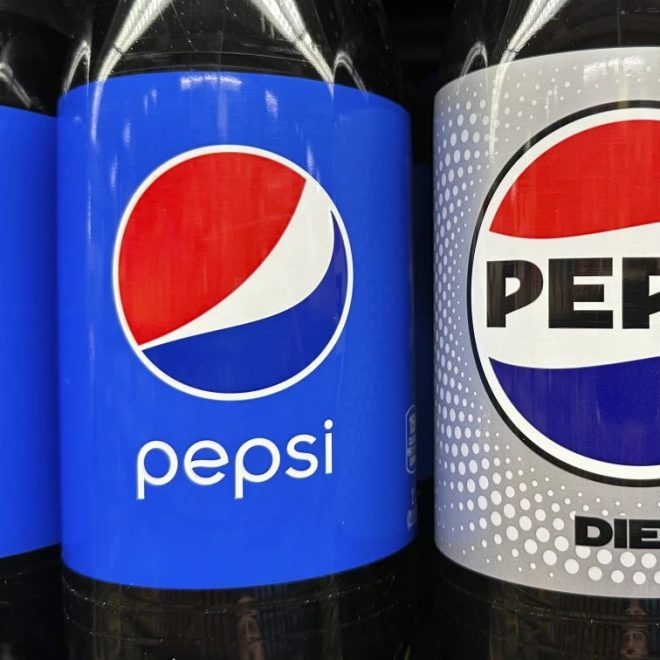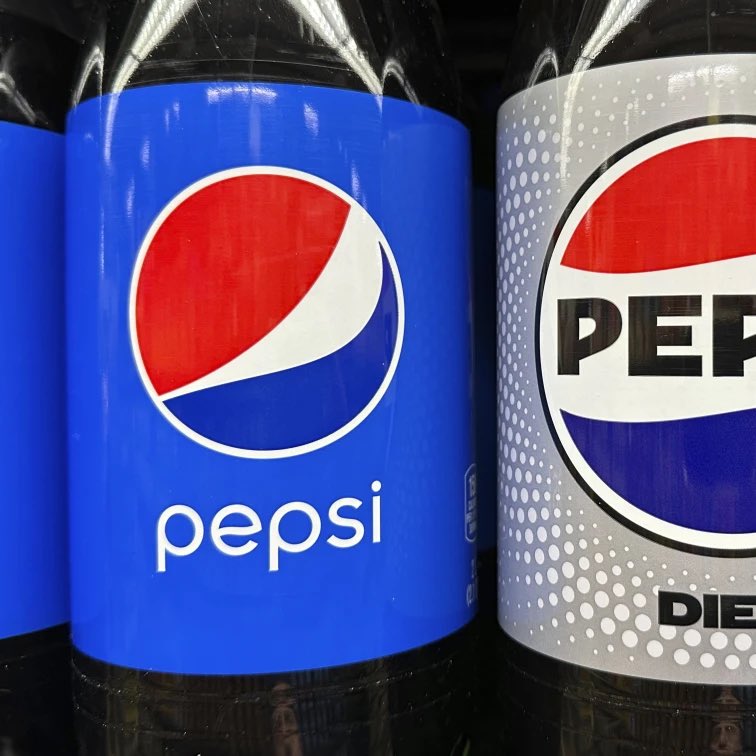
PepsiCo Terminates DEI Initiatives: A Shift in Corporate Strategy
In a significant shift regarding its Diversity, Equity, and Inclusion (DEI) initiatives, PepsiCo has announced the termination of specific programs aimed at enhancing minority representation within its managerial positions and supplier network. This decision has sparked discussions about the future of corporate DEI efforts and their impact on business growth.
Understanding the Decision
PepsiCo’s announcement, made on February 22, 2025, highlighted a strategic pivot. The company will no longer set goals for minority representation in management roles or within its supplier network. Instead, PepsiCo has decided to focus primarily on business growth. This marks a notable change in the company’s approach to DEI, as many corporations have been increasingly embracing these initiatives in recent years.
The decision has raised questions about the effectiveness and importance of DEI programs in today’s corporate environment. Critics argue that such initiatives are essential for fostering an inclusive workplace and promoting diverse talent, while proponents of the shift suggest that prioritizing business performance can lead to a more meritocratic work culture.
The Context of DEI in Corporations
Diversity, Equity, and Inclusion initiatives have gained momentum in the corporate world over the last decade. Companies have recognized the importance of creating a diverse workforce and inclusive environment as a means to drive innovation, improve employee satisfaction, and enhance overall business performance.
- YOU MAY ALSO LIKE TO WATCH THIS TRENDING STORY ON YOUTUBE. Waverly Hills Hospital's Horror Story: The Most Haunted Room 502
Organizations across various sectors have implemented DEI programs focusing on recruitment, retention, and promotion of minority employees. These efforts often include setting specific diversity goals, conducting bias training, and creating mentorship programs aimed at underrepresented groups.
However, the effectiveness of these initiatives has been a topic of debate. Some studies indicate that while DEI programs can improve workplace culture, they may not always lead to the desired outcomes in terms of representation or business results. This has led some companies to reconsider their strategies.
PepsiCo’s Shift: Implications for the Industry
PepsiCo’s decision to prioritize business growth over DEI goals could potentially set a precedent for other corporations contemplating similar changes. As the business landscape evolves, companies may need to reassess their corporate strategies to remain competitive.
By eliminating specific DEI goals, PepsiCo may be signaling a belief that focusing solely on business performance can lead to success without the need for structured diversity initiatives. This could resonate with other companies facing pressure to deliver strong financial results, especially in a challenging economic environment.
Reactions from Stakeholders
The announcement has elicited mixed reactions from stakeholders. Supporters of the decision argue that it allows PepsiCo to concentrate on operational effectiveness and profitability, which are critical for any business. They contend that focusing on business growth can ultimately lead to more opportunities for all employees, regardless of their background.
Conversely, critics of the decision express concern that abandoning DEI initiatives could hinder progress toward a more inclusive workplace. Many believe that diversity fosters innovation and that companies with diverse leadership teams are better equipped to understand and serve a diverse customer base.
Furthermore, some advocates for equity and inclusion argue that without clear goals, companies may inadvertently regress in their efforts to promote diversity. They fear that this shift could create an environment where minority representation is deprioritized, leading to a lack of diverse perspectives in decision-making roles.
The Future of DEI in Corporate America
The future of DEI initiatives in corporate America remains uncertain following PepsiCo’s announcement. As other companies observe the outcomes of this decision, there may be a broader trend toward reevaluating the role of DEI in corporate strategy.
Some companies may choose to follow PepsiCo’s lead, particularly if they believe that prioritizing business performance is essential to their success. Others may double down on their DEI efforts, viewing them as integral to their long-term strategy and corporate responsibility.
In light of this shift, it will be crucial for organizations to communicate their values and intentions clearly. Transparency around corporate goals, whether they include DEI initiatives or focus solely on business growth, will be vital in retaining employee trust and stakeholder support.
Conclusion
PepsiCo’s decision to terminate specific DEI initiatives and focus on business growth marks a significant moment in the ongoing conversation about diversity and inclusion in the corporate world. As the company shifts its strategy, the reactions from employees, customers, and industry peers will help shape the future of DEI programs across various sectors.
While some see potential benefits in this new approach, concerns about the implications for diversity and inclusion remain. The path forward will require a careful balance between achieving business objectives and fostering a workplace that values and promotes diversity. As the corporate landscape continues to evolve, the lessons learned from PepsiCo’s decision will undoubtedly influence the broader DEI discourse in the coming years.
In conclusion, the move by PepsiCo is likely to spark further debate about the effectiveness and necessity of DEI initiatives in achieving corporate success. As companies navigate these challenges, it will be essential to consider the long-term implications of prioritizing business growth over structured diversity programs, ensuring that progress toward an inclusive workplace does not stall in the process.

JUST IN: PepsiCo has announced the termination of some DEI initiatives. Specifically, the company will no longer establish goals for minority representation in its managerial positions or supplier network and will instead prioritize business growth. pic.twitter.com/ee7Rc7Rnll
— Election Wizard (@ElectionWiz) February 22, 2025
JUST IN: PepsiCo has announced the termination of some DEI initiatives
PepsiCo, a global leader in the food and beverage industry, has made a significant announcement that’s causing quite a stir in corporate circles. The company revealed that it will be terminating certain Diversity, Equity, and Inclusion (DEI) initiatives, a move that has sparked conversations around the importance of representation in the workplace. Specifically, PepsiCo stated that it will no longer set goals for minority representation in its managerial positions or its supplier network. Instead, the focus will shift to prioritizing business growth. This news was shared in a tweet by [Election Wizard](https://twitter.com/ElectionWiz/status/1893288975860662525?ref_src=twsrc%5Etfw), which has caught the attention of many.
What Does This Mean for PepsiCo?
So, what does this mean for PepsiCo and its employees? By shifting away from specific DEI goals, the company seems to be signaling a change in strategy. Instead of focusing on representation metrics, it looks like they are betting on broader business objectives. This could mean that PepsiCo believes the best way to foster a diverse and inclusive environment is through organic growth rather than through mandated quotas or targets.
However, this decision raises questions about the commitment to diversity and inclusion within the company. Critics may argue that without specific goals, there might be less accountability for fostering an inclusive workplace. After all, setting measurable targets can often be a useful way to track progress and ensure that all voices are heard.
The Role of DEI in Corporations
Diversity, Equity, and Inclusion have become buzzwords in the corporate world over the past few years. Many companies have committed themselves to fostering an inclusive environment, believing that a diverse workforce can lead to better innovation, creativity, and decision-making. Numerous studies have shown that companies with diverse teams often outperform their competitors.
Yet, implementing DEI initiatives isn’t without its challenges. Some companies have faced backlash for either not doing enough or for perceived “tokenism.” Others have found that setting ambitious DEI goals can sometimes lead to frustration if those goals aren’t met.
PepsiCo’s move to terminate certain DEI initiatives might be a response to these challenges. Instead of aiming for specific outcomes, they may be adopting a more fluid approach that allows for more organic growth and adaptation over time.
Business Growth vs. Representation
The shift to prioritize business growth over representation raises an interesting debate. On one hand, focusing on business growth could potentially lead to increased profitability, which is vital for any organization. However, the question remains: can a company truly grow without a diverse and inclusive workforce?
Some argue that a lack of diversity at the managerial level can hinder a company’s ability to connect with a diverse customer base. If leadership doesn’t reflect the diversity of the community it serves, it might miss out on valuable insights and innovative ideas.
PepsiCo’s decision could lead to a long-term strategy that prioritizes business metrics over social metrics, but this could also backfire if employees or consumers perceive it as a step backward in terms of social responsibility.
Reactions from Employees and the Public
Unsurprisingly, the announcement has triggered a mixed bag of reactions. Some employees may feel relieved, believing that the pressure to meet certain DEI targets has been lifted. Others, however, might feel disheartened by the news, fearing that the company is stepping away from its commitment to diversity and inclusion.
Public sentiment is equally divided. Some individuals applaud the move, arguing that a focus on business outcomes is essential, especially in a competitive market. Others criticize the decision for what they perceive as a lack of accountability in promoting diversity within the company.
Social media has become a platform for these discussions, with many weighing in on the implications of PepsiCo’s change in strategy. The conversation highlights a broader societal debate about the importance of representation in corporate America.
Looking Ahead: What’s Next for PepsiCo?
As PepsiCo moves forward with this new strategy, it will be interesting to see how it impacts the company’s culture and performance. Will the focus on business growth lead to better overall performance, or will it result in a stagnant culture that lacks diversity?
The company will need to tread carefully. While business growth is undoubtedly important, ensuring that diverse voices are represented within the organization is equally crucial for long-term success. A balance between these two priorities could be key to navigating future challenges.
PepsiCo may need to find new ways to cultivate an inclusive environment, even without specific DEI targets. This could involve fostering open dialogue among employees, providing training on unconscious bias, or encouraging diverse teams to collaborate on projects.
The Importance of Ongoing Conversations
Regardless of PepsiCo’s decision, the conversation around DEI initiatives is far from over. Companies across various industries should continue to engage in discussions about diversity and inclusion. The challenges and opportunities that arise from these conversations can lead to innovative solutions that not only benefit organizations but also contribute to a more inclusive society.
PepsiCo’s announcement serves as a reminder that corporate strategies are continually evolving. While the focus may shift, the underlying principles of diversity, equity, and inclusion remain vital for creating a thriving workplace.
In the end, it’s crucial for all companies, including PepsiCo, to remain accountable to their workforce and the communities they serve. Engaging with employees and stakeholders to understand their concerns about representation can lead to a more robust corporate culture that values every voice.
Final Thoughts
As we keep an eye on PepsiCo’s next moves, it’s essential to remember that the landscape of corporate America is changing. Companies must adapt to not only remain competitive but also to meet the expectations of their employees and consumers. The balance between business growth and representation will continue to be a hot topic, and organizations must navigate it with care and intention.
In the end, PepsiCo’s recent announcement regarding the termination of some DEI initiatives is just one piece of a much larger puzzle. The future will reveal how this decision impacts the company, its employees, and the communities it serves. The ongoing dialogue around diversity and inclusion will undoubtedly continue, shaping the corporate landscape for years to come.
